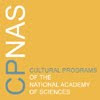From: Richard Twine
Date: Tue, 13 Mar 2007 16:45:01 -0000
SESSION THREE: SOCIAL AND CULTURAL IMPLICATIONS OF BIOSCIENCE
Each discipline has its own set of practices with regard to this question. From your particular perspective, please identify the issues, values, and ethics involved in these transformative bio-practices.
As a sociologist interested in the social and ethical aspects of animal biotechnologies, a central issue is to investigate the extent to which the bio-sciences are effecting a shift in our relations to nature, and the very meanings of 'nature'. I take on board Oron's point that artists, sociologists and cultural critics can certainly become embroiled in the mythical hyping of bioscience, and so consequently we should be cautious in over-stating our claims. Interestingly since we are talking about highly commercialised domains of science, scientists may be encouraged to adopt a rather performative stance to prospective venture capital audiences. We can witness this right now in the area of using cloning technologies for animal agriculture which (setting aside ethical questions and focussing on the technical possibility) is rather 'gung ho' in the USA and treated with much more scepticism in the EU.
We're in the early stages but arguably changes are afoot, hyped or otherwise. Marker Assisted Selection or Gene Assisted Selection which are molecular techniques of refined selective breeding using genomic information (not to be confused with genetic modification - GM) are developing with some already in use, and pockets of research for the use of GM & Cloning in animal agriculture are also ongoing. Xenotransplantation has hit a wall, but research continues, and biopharma research although rather slow in progress is also ongoing. Several of these techniques encourage a convergence between medical and agricultural domains which is novel in its hybridising effect, if not its history of knowledge exchange. Obviously plant agriculture is further 'ahead' in these respects.
The ethical import in these transformative bio-practices could revolve around the question of what the human becomes when it transitions into a designer of life? The bio-sciences might equally be drawn upon to underline cross-species solidarity or indeed a definitive humiliation of a nature still represented as abject and nonhuman. In terms of animal ethics specifically, the vast majority of GM work is in medical research, a historical paradigm that is very difficult to extract ourselves from. Nevertheless our values towards other animals are highly ambiguous, with this ambiguity probably being a latent cultural resource for change. It's arguably the dark little marginalised truth pertaining to our cultural practices of animal consumption that is more ethically interesting. Unless our thriving posthumanist vegan and vegetarian friends are grabbing some animal protein on the sly, it does in fact appear that our animal consumption is a psychological/cultural/geographical need rather than a physiological one. We might then want to think more on why art/sci interactions could be seen to be privileging certain forms of 'sexy' science. An artist working with a team of animal welfare or behavioural scientists or even nutritionists might come up with a different take on the issues of hubris and anthropocentrism than one who goes for animal transgenics, as interesting and as valid as that is. Perhaps, as implied by one or two earlier posts, sciences such as tissue engineering will have a considerable impact on human/animal relations if engineered meat really does happen, or at least a proliferation of novel protein foods (see this Dutch research project for more information on that - http://www.profetas.nl/). It would be good to hear more from the artists here who use animals in their work - whether or not they think their work is raising any particular ethical questions or questionings of bioscience.
thanks,
Richard
Dr.Richard Twine
Principal Investigator & Postgraduate Director
ESRC Centre for Economic and Social Aspects of Genomics (CESAGen)
to post a response, click on the "comment" button below
to return to the main page, to go www.visualcultureandbioscience.org
Subscribe to:
Post Comments (Atom)

No comments:
Post a Comment